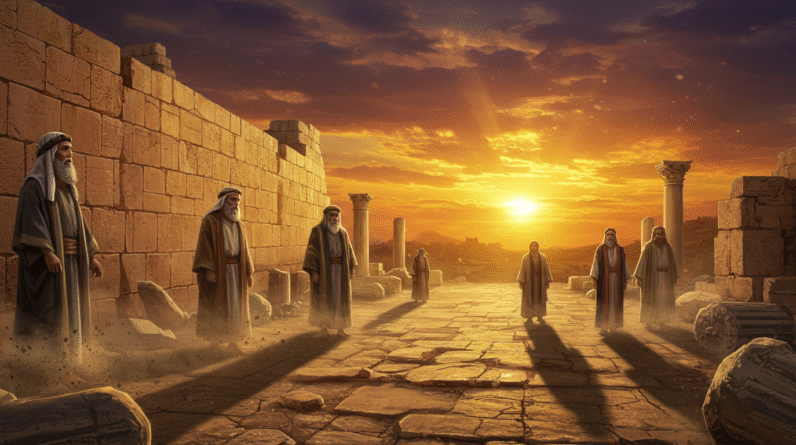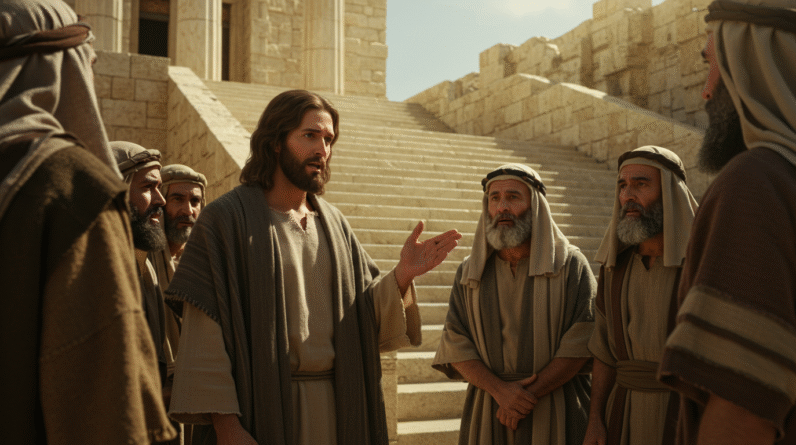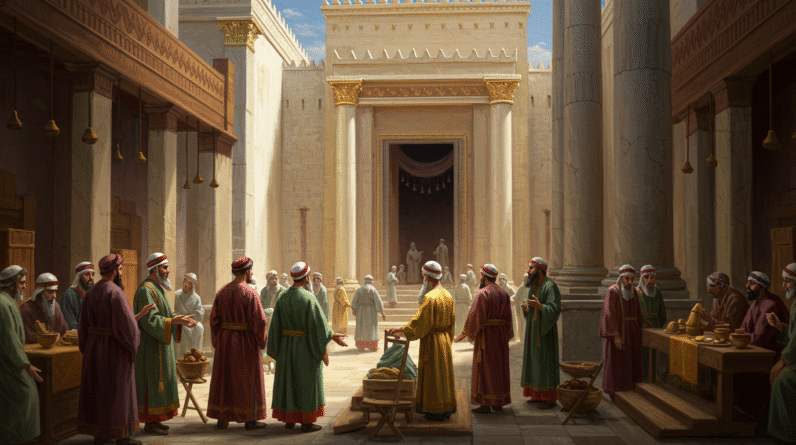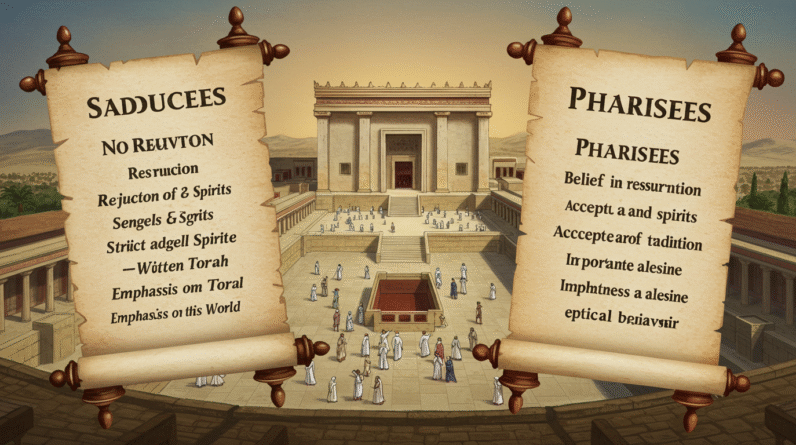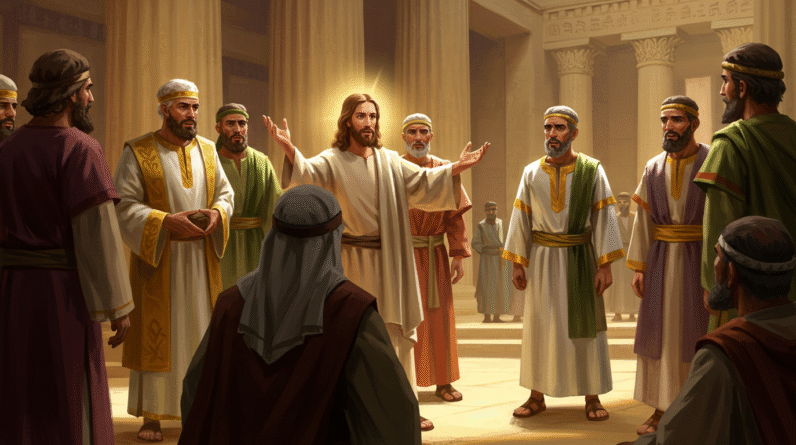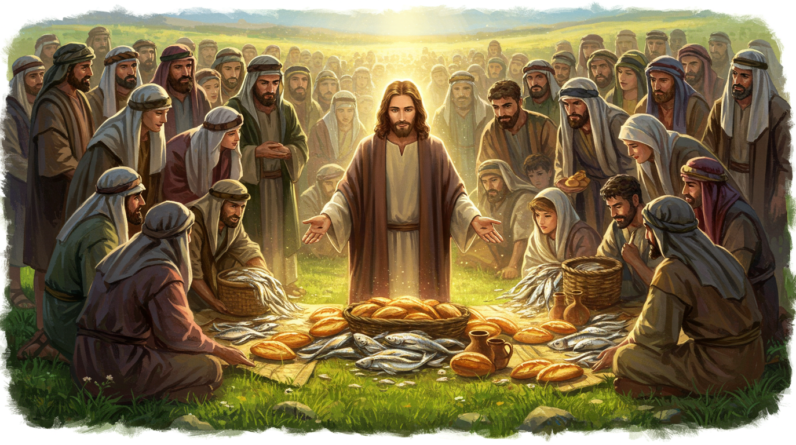Explore the diverse reactions of the crowd during Jesus’ Triumphal Entry in Matthew 21:1-11. Delve into prophecies, faith’s complexity, and modern parallels.

The Crowd At Jesus’ Triumphal Entry – Matthew 21:1-11
Introduction
Imagine standing on a sun-drenched street in ancient Jerusalem, dust swirling around your feet, a crowd bustling with anticipation. You might hear mums hushing their children, vendors calling out, and an overall buzz of excitement, all for the arrival of one humble figure – Jesus of Nazareth. The Triumphal Entry, as recorded in Matthew 21:1-11, is a climactic moment in the biblical narrative, where prophecy meets reality and the lines between ancient expectation and current awe blur seamlessly.
Their Story in the Bible
The passage opens with Jesus and his disciples approaching Jerusalem. Amid the landscape of tactile anticipation, Jesus gives precise instructions: Go to the village ahead and untie a donkey with her colt, for the Lord has need of them (Matthew 21:2-3). This seemingly mundane detail fulfills a prophecy uttered long ago by Zechariah, indicating the arrival of a king riding humbly on a donkey (Zechariah 9:9).
As Jesus mounts the humble animal, cloaks and branches carpet his path. The crowd’s elated chants of “Hosanna to the Son of David!” (Matthew 21:9) reverberate through the streets. Each voice cries out recognition of a messianic hope that bounds through the veins of history. This was no mere entry; it was a declaration of kingship, an announcement charged with weight and wonder.
However, this jubilant crowd is not monolithic. The assembly comprises diverse layers – devout disciples, curious onlookers, skeptical Pharisees, and hopeful pilgrims. Through different eyes, this moment can be seen as a revolutionary tide or a spiritual awakening. Every participant carries their bundle of expectations, illuminating the timeless complexity of personal encounters with the divine.
Lessons from Their Life
From the exuberant cries of “Hosanna,” we derive lessons rich with relevance. Firstly, the crowd teaches us about the frailty of human conviction. As with all groups, popular opinion can sway – the same people who lay palm branches may soon be those who cry “Crucify Him” (Matthew 27:22). This oscillation urges us to anchor our convictions not in crowd mentality but divine truth.
Moreover, their story resonates with themes of humility and servitude. Jesus’ choice of a donkey over a warhorse represents a kingdom where humility reigns. It’s a kingdom where power is perfected in vulnerability, where leadership is synonymous with service. The question arises: how can we embrace such counter-cultural values in our lives?
Finally, the reactions of the crowd highlight the diversity of responses to Jesus’ kingship. Some followed wholeheartedly, while others remained skeptical. This is a reminder that our journeys of faith are deeply personal, underscored by everyday decisions to seek understanding and grace.
Connection to Today’s World
Jump now to the present, where the hustle and chaos of modern life often drown out the echoes of triumphs past. What does a donkey’s journey through Jerusalem mean to a world addicted to instant gratification and surface-level perceptions? In a society that prizes power and speed, Jesus’ entry challenges us to rethink leadership, success, and community. Imagine embracing patience in a world consumed by urgency, emulating humility when pride is heralded as strength.
Much like the mixed assembly at Jesus’ entry, today’s world is filled with myriad responses to spirituality and faith. Whether one stands firm in belief or teeters on the edge of doubt, the gravitational pull of Jesus’ message remains an irresistible force that speaks to our deepest yearnings. It calls us to see ourselves within the crowd, examining our own shouts of “Hosanna” and how they translate into everyday action.
The ever-changing dynamics of trust and disillusionment within the story invite us to reflect on our societal attitudes, inspiring discernment, and steadfastness amidst varying voices. In essence, it whispers an ancient truth into modern ears: the good news transcends time, unfurling a banner of love relevant to every era.

Key Bible Verse
A pivotal moment is captured succinctly: “The crowds that went ahead of him and those that followed shouted, ‘Hosanna to the Son of David!’” (Matthew 21:9). This verse encapsulates the essence of expectancy and reverence that filled that moment. It’s a call to embrace Jesus as both King and Savior, consistently finding new avenues to express heartfelt worship amid life’s complexities.
Thought-Provoking Question
As you ponder the triumphal figure making his way amidst the cries of “Hosanna,” consider: Amid societal noise and personal turmoil, do you find yourself part of the crowd cheering on what aligns with divine truth, or swayed by the majority’s shifting tide?
Historical/Cultural Context
Delving into the historical context enriches our understanding of this event. The setting is Jerusalem during Passover, a time when the city swelled with pilgrims from far and wide. This annual commemoration of liberation from Egypt added layers of significance to Jesus’ entry, foreshadowing another form of deliverance. The palm branches symbolized nationalistic aspirations and cries of “Hosanna” echoed ancient pleas for salvation and deliverance from oppression. Understanding these cultural currents helps illuminate the charged atmosphere of the moment.
Comparison with Other Characters
Contrast this crowd with other biblical figures like Saul, whose leadership was marked by insecurity, and David, whose kingship embraced both fallibility and faith. Jesus stands apart as a King defined by compassion and peace, a testament to servant leadership. Analyzing these comparisons can lead to richer insights into biblical leadership models and their implications today.
Prayer
Here’s a prayer inspired by this momentous event:
Heavenly Father, In the quiet of our hearts amidst the bustling crowds, let us recognize Your presence. Teach us to walk humbly, to believe boldly and to love deeply. May we always cry ‘Hosanna’ from hearts aligned with Your truth. Guide us as we navigate the noise of our times, grounding us in Your eternal word. Amen.


